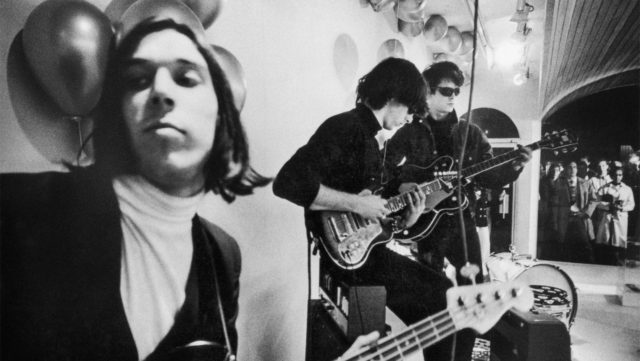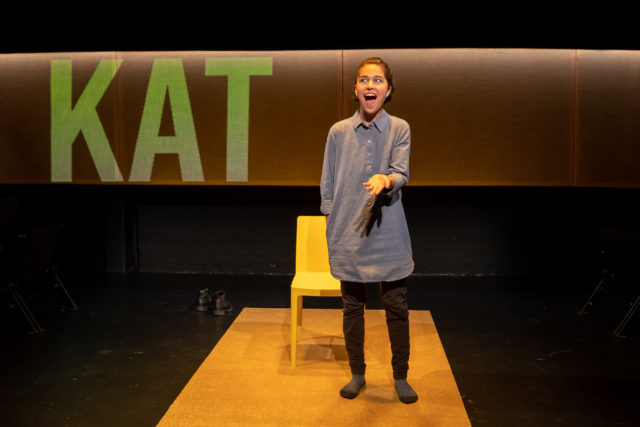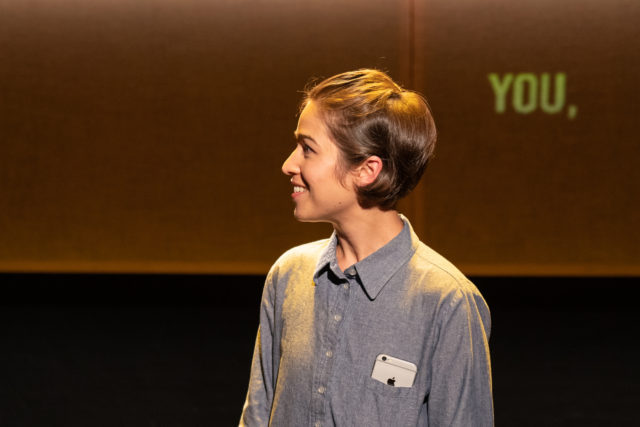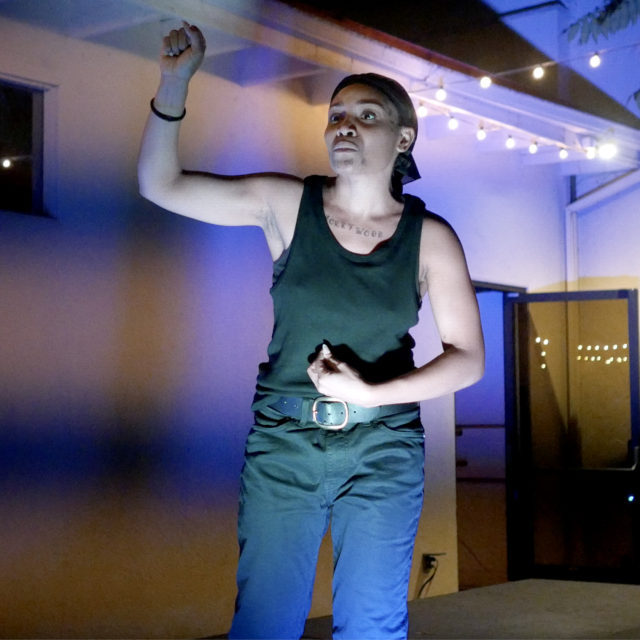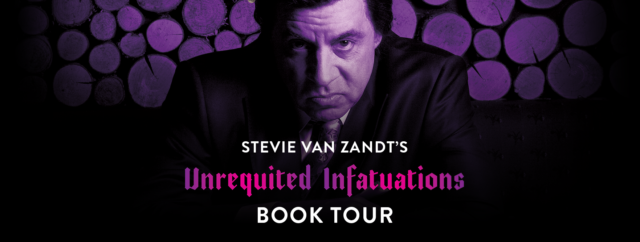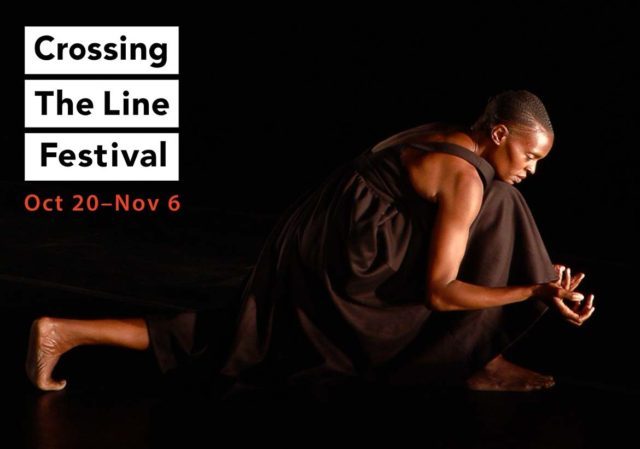
CROSSING THE LINE FESTIVAL
FIAF and other locations
55 East 59th St. between Madison & Park Aves.
October 20 – November 6, free – $25
212-355-6100
fiaf.org
Igbo-Nigerian American multidisciplinary artist Okwui Okpokwasili has not let the pandemic lockdown slow her down. After appearing in the Public’s outstanding revival of Ntozake Shange’s for colored girls who have considered suicide / when the rainbow is enuf in the late fall of 2019, Okpokwasili has taken part in Danspace Project’s Platform series, the New Museum exhibition “Grief and Grievance: Art and Mourning in America,” and numerous online discussions and special presentations. Her 2017 film, Bronx Gothic, was screened virtually by BAM. In June, she led a procession through Battery Park City for the River to River Festival. And in May, I caught her captivating project On the way, undone, in which she and a group of performers walked across the High Line wearing futuristic head gear made of light and mirrors, vocalizing as they headed toward Simone Leigh’s Brick House sculpture.
Okpokwasili is now the centerpiece of FIAF’s 2021 Crossing the Line Festival, taking place at multiple locations from October 20 to November 6. Throughout the festival, her video installation Before the whisper becomes the word, made with her regular collaborator, director, and husband, Peter Born, will be on view in the FIAF Gallery, exploring remembrance, community mourning, and history. On October 20 at 7:00, she will speak with festival curator Claude Grunitzky in the FIAF Skyroom about the show. “This installation is a crossroads, a midpoint, a caesura. A place caught between worlds,” she said in a statement. “Can we remember what came before while imagining the shape of a future landscape? We enter mid-song, a song that marks a singular moment in time while also expressing an entire lineage. The song is a container for an unreliable memory. From whose mouth is history born? Whose words are trusted when it comes to the telling of what happened? If the history we learn is that which is spoken aloud, what is learned by listening to the whispers that have not been written?”
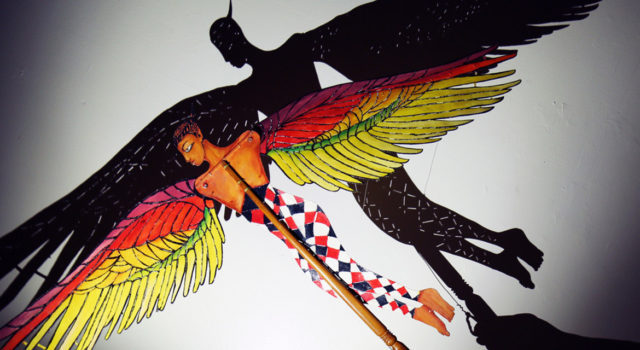
Christopher Myers’s Fire in the Head will make its world premiere at FIAF’s Crossing the Line Festival
Okpokwasili will also be presenting On the way, undone at the Weeksville Heritage Center in Brooklyn October 21-23 ($25). In a High Line video, she says about the work, “I hope it’s a kind of medicine . . . an architecture of sound, light, that is in some way trying to imagine a portal, an opening through space and time, and it’s imagining a woman’s future self, a young girl’s future self singing back to her.”
In addition, the festival includes nora chipaumire’s Nehanda, an opera that was excerpted for River to River at the Clemente Soto Vélez Cultural & Educational Center and for FIAF will be broadcast in two cycles both online ($15) and in person ($25) at FIAF’s Tinker Auditorium, divided into eight “days”: natives, whites, pungwe, thinkers, komuredhi judhas nemajekenisheni, white verdict, killings, and manifesting, with an artist talk on October 30 at 5:00; a concert by Grammy nominee Somi in Florence Gould Hall on October 28 ($25); Christopher Myers’s Fire in the Head, a tribute to Vaslav Nijinsky with shadow puppets taking place October 29 and 30 ($25, 7:30) at the Chinese Consolidated Benevolent Association; and Kaneza Schaal’s work-in-progress KLII, November 4-6 in Florence Gould Hall ($25), an exorcism of colonialism and the ghost of King Leopold II, incorporating archival footage and texts by Mark Twain and Patrice Lumumba.

